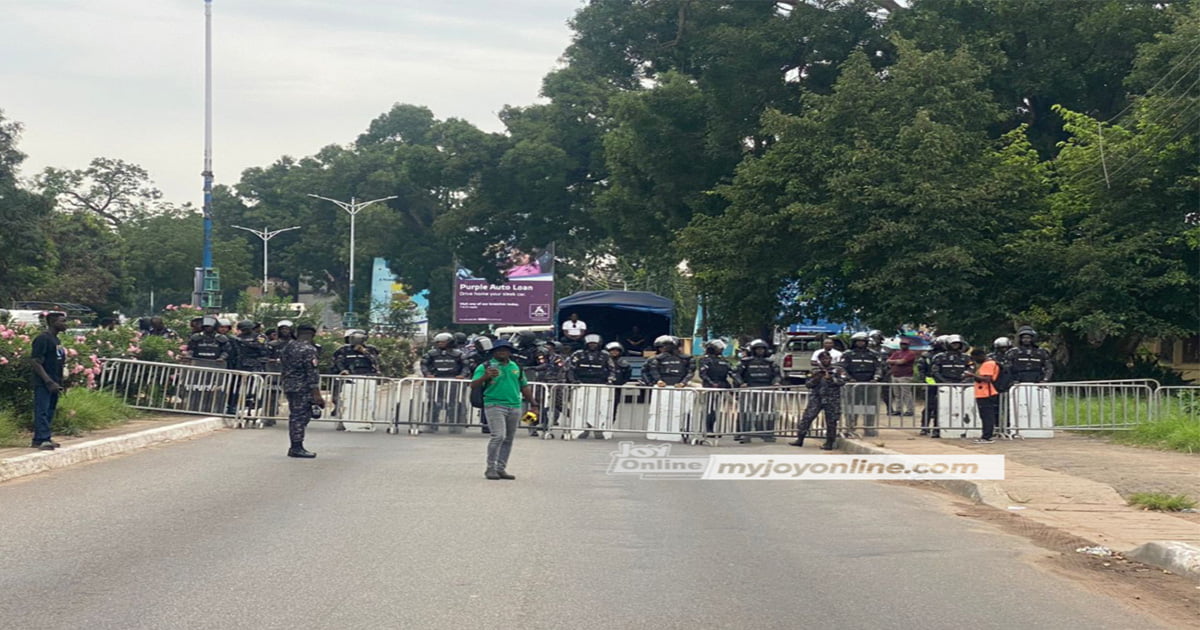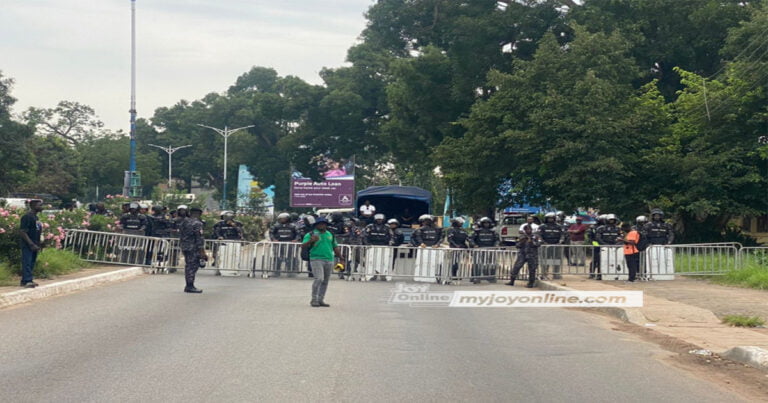In 2023, precisely on September 21st, the city of Accra in Ghana was the hub of a major occurrence that seized the nation’s focus – the OccupyJulorbiHouse protest. The quest, which was arranged by the Democracy Hub Gang, was to highlight the decaying financial disaster and fraud heavily infesting the country. With this piece, we explore the drive behind the protest, the influence it left on Ghana, and its implications in the future.
OccupyJulorbiHouse: The Reasoning Behind It All
The weight on the populace continues to climb with the increase in inflation.
Many Ghanaians are struggling with the burden of an increasing cost of living, brought on by spiraling rates of inflation. In an effort to confront this issue head-on, protesters have taken to the streets to demand greater accountability from the government regarding its economic policies.
In Ghana, the youth unemployment crisis persists as a prominent issue. Feelings of despair and futility are prominent among many young Ghanaians, as they are faced with a dearth of job prospects. To address this, #OccupyJulorbiHouse is advocating for tangible measures that will generate employment opportunities and empower the country’s youth.
Assuming accountability and transparency for economic management is crucial for Ghana’s future stability, as protestors assert while pointing to the current situation.
Ghanaian society has been infiltrated by corruption, causing public institutions to lose the trust of the people. The pursuit of justice demands a full-blown inquiry into the activities of corrupt officials and their subsequent prosecution.
The #OccupyJulorbiHouse protest in Ghana seeks to tackle the issues faced by the country by presenting a set of demands. These demands also aim to highlight the problems at hand.
Ordinary citizens are facing a financial burden, and protestors are demanding actions to address it. Their demands encompass decreasing essential goods and services prices.
Ghana’s youth crave stable career prospects that will secure their tomorrows. Within the demonstration, there is an adamant call for programs that produce long-lasting job opportunities that span different industries.
A comprehensive investigation into allegations of corruption is demanded to restore trust in public institutions and the government. Legal consequences must be faced by those found guilty.
Within Ghana and beyond, the #OccupyJulorbiHouse demonstration has attracted notable interest. Amplifying the message, social media sites such as Twitter and Facebook have played a significant part with the hashtag being a trend.
Law enforcement and demonstrators have faced sporadic conflicts during an otherwise peaceful protest. During the initial day of the protest, 49 individuals were apprehended by police, and later released on bond.
Amidst the protest, the Ghanaian government has urged calm. The importance of dialogue has been emphasized. Nevertheless, the protestors stand firm, declaring that they will only disband once their demands have been met.
This protest serves as a significant indicator of the increasing discontent among Ghanaians regarding the condition of their nation. Furthermore, it emphasizes the crucial role that the right to freedom of assembly and expression plays in a democratic society.
The #OccupyJulorbiHouse protests are a powerful expression of the Ghanaian people’s desire for change. It unfolds with the potential to change the country’s trajectory and spark discussion on key issues such as economics, corruption and governance. While the government’s response remains uncertain, the voice of the Ghanaian people is clearly demanding recognition.
FAQ:
1. What is the nature of the #OccupyJulorbiHouse protests?
The #OccupyJulorbiHouse protest was a peaceful demonstration organized by the Ghana Democratic Center. Its purpose is to urge governments to take action on pressing issues such as rising inflation, high unemployment, economic mismanagement and corruption.
2. What is the main complaint of the protesters?
Protesters are primarily concerned about Ghana’s economic crisis, including the high cost of living, lack of job opportunities and widespread corruption within the government.
3. How does social media influence protests?
Social media platforms, especially Twitter, played an important role in raising awareness of the protests. The hashtag #OccupyJulorbiHouse is growing in popularity and attracting local and international attention.
4. How did the government respond to the protests?
Ghana’s government has called for calm and dialogue in response to the protests. But protesters are determined to continue until their demands are met, including addressing economic woes and corruption.
5. What does this protest mean to Ghana?
The #OccupyJulorbiHouse protests are a sign of growing dissatisfaction among Ghanaians with the current state of affairs in the country. It also highlights the importance of democratic rights such as freedom of assembly and expression in addressing critical issues.
Image source: myjoyonline 09/23/2023




